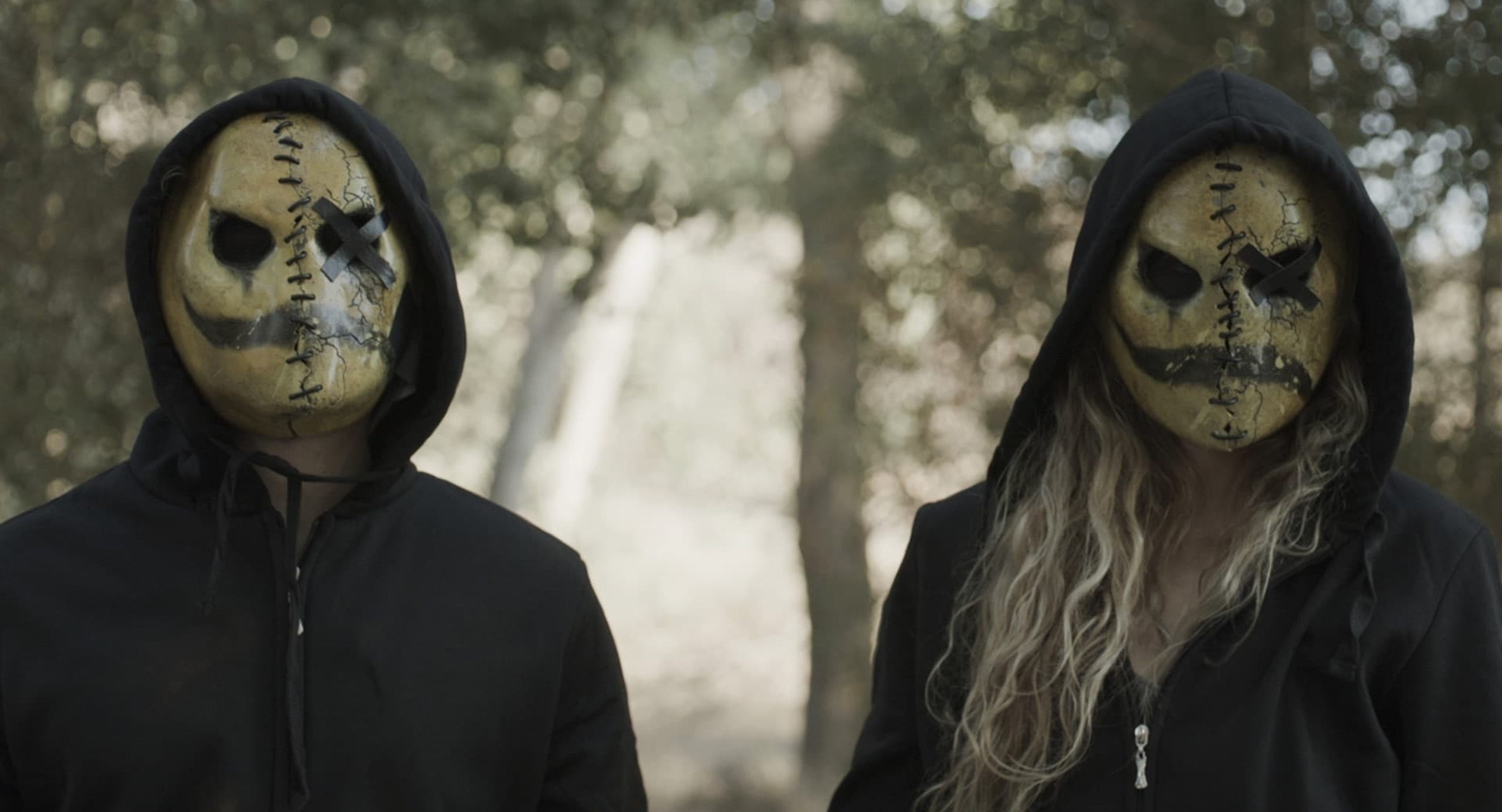Camp Pleasant Lake – Film Review
Published March 4, 2024

Horror enthusiasts frequently seek films that promise an intriguing premise, spine-tingling suspense, and characters whose fates you’re compelled to care about. Thomas Walton‘s Camp Pleasant Lake aims to check these boxes but falls dramatically short in its execution, making for a murky cinematic plunge that leaves viewers more befuddled than frightened. The movie, with a narrative rooted in the reopening of an old campsite that is drenched in a dark, unresolved past, initially sounds like fertile ground for a gripping horror story. Yet, what ensues is a convoluted plot that is as stagnant as the titular lake’s waters.
The cast, headlined by Kelly Lynn Reiter, Jonathan Lipnicki, Leila Almas Rose, and James Di Giacomo, portrays the Meadows family, who are entangled in a haunting series of events following their decision to resurrect the once-abandoned campsite. While the setting could offer a rich backdrop for a tale of suspense and supernatural occurrences, Camp Pleasant Lake mismanages its assets, leading to a narrative that feels both underdeveloped and overambitious.
Kelly Lynn Reiter’s portrayal of Echo Meadows, the family matriarch driven by a desire to rejuvenate the derelict campsite, fails to resonate deeply with the audience. Despite Reiter’s efforts, the character’s emotional depth and connection to the unfolding mystery feel superficial. Jonathan Lipnicki, known for his memorable child actor roles, takes on the character of Jasper Meadows with a determination that is palpable yet ultimately hindered by the script’s limitations. Leila Almas Rose and James Di Giacomo, playing the Meadows children, deliver performances that fluctuate between moments of genuine promise and instances of discomfort, mirroring the film’s inconsistency.
Thomas Walton, both at the helm of writing and directing, crafts a storyline that intertwines the Meadows family’s present endeavors with the chilling past of a young girl’s disappearance two decades prior. While this setup promises a melding of past and present horrors that could captivate audiences, the execution leaves much to be desired. The mystery surrounding the missing girl is introduced with an air of intrigue but quickly devolves into a labyrinth of plot holes and narrative detours that detract from any semblance of suspense or horror.
Furthermore, the film’s attempt to invoke supernatural elements as a mechanism for unraveling the camp’s gruesome history is lackluster at best. The manifestations of these forces often come off as clichéd and predictable, stripping away any potential for genuine fear or engagement. Instead of innovatively leveraging the camp’s eerie setting and haunted history, *Camp Pleasant Lake* opts for an array of tired horror tropes that do little to refresh the genre or provide audiences with novel frights.
Visually, the film navigates through its scenic, albeit ominous, campsite locale with a semblance of ambition. However, any atmospheric tension built through these visuals is repeatedly undermined by erratic pacing and awkward dialogue that pulls viewers out of the moment. Cinematography that could have played a crucial role in amplifying the story’s eerie undertones instead oscillates between moments of competence and scenes that feel clumsily assembled.
Perhaps the most disheartening aspect of Camp Pleasant Lake is its underutilization of the compelling premise it sets up. The idea of a family unknowingly entangling themselves with a site that harbors dark secrets carries inherent appeal. Yet, the film’s exploration of this premise is surface-level, squandering the opportunity to delve into the psychological and emotional depths such a scenario could unearth. Instead, the narrative meanders, focusing too much on establishing a mystery without effectively laying the groundwork for a satisfying revelation or conclusion.
Moreover, the film’s climax, intended to be a riveting reveal that ties together loose ends, instead comes across as contrived and rushed. Any momentum built is swiftly undercut by resolutions that feel both unearned and hastily constructed. This culminates in a viewing experience that, rather than leaving audiences on the edge of their seats, more likely leaves them perplexed and unsatisfied.
Camp Pleasant Lake is a film that teases the possibility of horror but fails to deliver the necessary suspense, character development, and narrative cohesion to make it a memorable addition to the genre. Despite a potentially compelling premise and a cast that does its best with the material provided, the movie struggles under the weight of its own ambitions, resulting in a product that feels half-realized. For fans of horror seeking their next thrill, it may be advisable to skip this visit to Camp Pleasant Lake and set their sights on clearer, more chilling waters.
